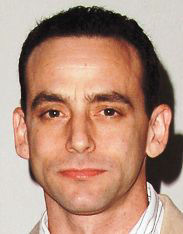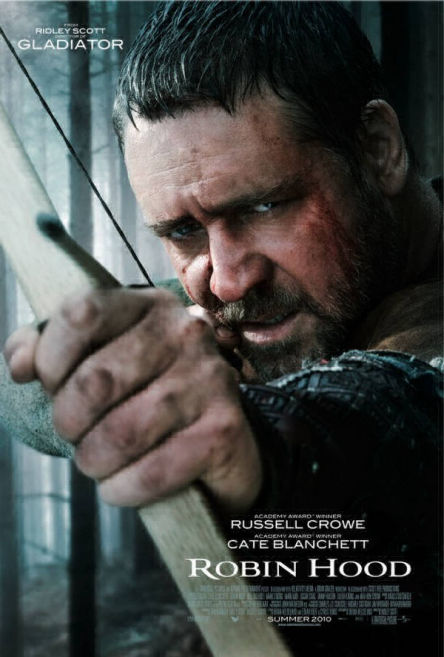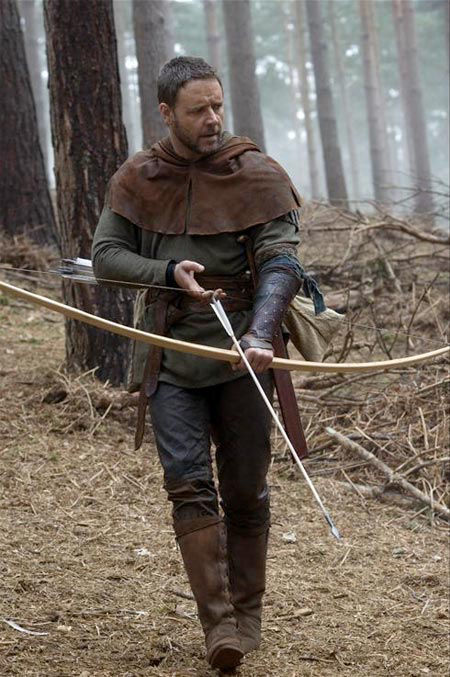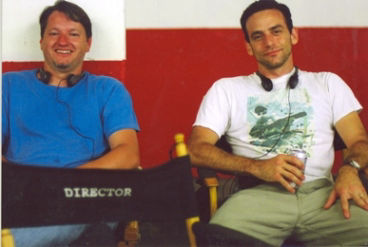The bidding war and what followed
AWW:
I understand your script sparked off quite the bidding war when it came out.
ER:
It did. At the time, it was the biggest success of our feature screenwriting careers. There were a number of A-list directors who attached themselves to try to get the movie made at different studios. There was Russell Crowe who attached himself to star all over town. And in the end, it was three different studios that were all actively trying to purchase it. So there was a bidding war for the script and Universal won. And Brian Glazer and Imagine Entertainment also attached themselves as producers before Universal bought the script.
So Russell Crowe and Brian Grazer and Imagine are all attached. Later on, Ridley Scott came on board to direct at Universal. And Ridley Scott, who's obviously one of the most accomplished filmmakers in history, really didn't have much interest in our screenplay or our version of this story. And it took a couple of years of re-developing, you know rewriting and re-rewriting what had been Nottingham before Ridley Scott was satisfied and happy with the screenplay he finally had in his hands. And Universal and he and Russell Crowe went forward and made the movie that's now coming out as Robin Hood.
AWW:
Did you have any involvement in the rewriting?
ER:
We really didn't. In the beginning, again before Ridley Scott came on board, we were set to travel down to Australia and get input from Russell Crowe as for what changes he wanted done to the script. But when Ridley Scott came on board that halted and they went off in whatever direction Ridley Scott wanted to go in. Which is understandable, since he is Ridley Scott.
We can't complain because we got paid. Because it was an original screenplay and because there are still a couple of elements from our original material involved, our names are still on the movie as co-writing the story along with Brian Helgeland who gets the sole screenplay credit. And we got paid, and hopefully the movie will be a big success.
There is an element of frustration in the sense that because the screenplay was bought and paid for, Universal owns it outright. So even though it didn't really get made intact, I don't know we can ever do anything else with it so to speak. Which is a little bit frustrating because it would have been nice for us to have seen how our version of the story would have turned out as an actual finished movie.
AWW:
So, Robert Tornham's not going to turn up anywhere else.
ER:
I don't know. Oddly enough, a dopey little detail but at the time, and it took us awhile to finish the screenplay, we wrote it in-between other jobs, mostly this TV show called Sleeper Cell that we created and ran for the Showtime cable network here in the US and sold and played on TV stations around the world. We did two seasons of that show. And we came up with Nottingham and started writing it before we did that show. We had to take a break writing it when we did the first season of Sleeper Cell. In between the first and second seasons, we continued writing Nottingham. And after the second season ended, we finished it. So, there was that entire process of writing the screenplay stretched out over probably three years. Mostly in spurts, you know.
There was a reason for me going off on that tangent and I've lost it -- Robert Tornham, that's it! A little bit of medieval, modern historiography trivia. When we started writing Nottingham, we scoured the globe for material on Robert Tornham and on the English in Cyprus. And there wasn't much - a little bit and we got our hands on all of it. And oddly enough, when the publicity for the finished Robin Hood film started to get going, just out of sentimental nostalgia, I did a little bit of a search on the web. It turns out that someone took it upon themselves to create a Wikipedia article on Robert Tornham, the lone surviving sheriff / justiciar of Cyprus appointed by King Richard. In the interim, sometime between when we set out to make Robert Tornham a hero played by Russell Crowe and when the movie really came out, and unfortunately for us Robert of Tornham was nowhere to be seen, somebody else out there in the world had taken it upon themselves to immortalize Robert of Tornham on Wikipedia.
AWW:
So, when you were doing the research for Nottingham. How did you balance the historical details with the story? I understand you did a lot of research even on how characters brushed their teeth.
ER:
Yeah, that's funny. I don't know where you heard that but it's true.
The thing is with Robin Hood, I think -- speaking for myself -- it's impossible to do the real Robin Hood. Whether or not there was a real Robin Hood becomes question number one. And which of the potential real Robin Hoods from which age of English medieval or early Renaissance history you're going to choose as your version of the real Robin Hood becomes question number two. And then which later historical / literary / cinematic / social or cultural vision or interpretation of that historical or quasi-historical figure you're going to use when do your version becomes question number three. You have to pick and choose. You have to take your own approach. I don't think that's a bad thing. I just think that's the reality, you know.
Probably every generation has its own Robin Hood, so to speak. And I imagine if it's successful, you probably have some element that resonates from the past in real history or in literature and some other element that resonates with the contemporary audience that's watching it or reading it and connects to the world they live in. And for us, we did try to do that to some extent with Robin Hood, but he was, in all honesty, a secondary character compared to our sheriff.
And we tried to do that with the sheriff. Not to be pretentious or overly involved, but I think we tried to do that with a little bit of inspiration based on the Americans serving in Iraq at the time. The idea that like a colonel in the army or a brigadier general who's responsible for the life and death of his men and responsible to some extent for the well-being for the area of Iraq that he's in command of. He's stuck in a terribly difficult, terribly tough position where every choice, no matter what he chooses is bad. It's just a question of balancing which is not quite as bad -- which is not quite as deadly for not quite as many people. And at heart, he's a very decent guy
trying to do the right thing to the best of his ability even though he can see that maybe there are problems with the mission, there are built-in contradictions with the mission, but that's the mission he's been given. And if he doesn't do it, somebody else is going to do it who probably won't be as capable or decent as him. So, he forces himself to stick it out and do the best job possible.
I don't think I've actually talked with anybody else outside of our office about the fact that was an element of inspiration for our Sheriff of Nottingham at the time we wrote the script, but it was. The idea of a good man in a terrible position. No matter what choice he makes, it's going to be bad but he's going to stick it out because he's a good guy and he knows he's good at his job.
AWW:
But unfortunately for him, no good deed went unpunished?
ER:
Yeah, in fact, that's exactly how our script ended in a way. Our Robert Tornham is personally responsible for allowing Richard to succeed, take the city of Nottingham and defeat his brother Prince John and put down his enemies of the civil war. But for a variety of reasons, our Sheriff of Nottingham doesn't get any of the credit for having done that. He's basically left by the side of the road so to speak by history and the powers-that-be in England at the time.
AWW:
I guess they preferred Robin Hood ...
ER:
Yes, because Robin Hood is the sexier hero. Because Robin Hood is the more romantic, sexier figure, he's the one that Richard decides to embrace in order to help unify the kingdom in the aftermath of the trouble that had been going on.





Contact Us